文章探討為什麼鋼琴學習者應該練習三角琴,從音色、觸鍵靈敏度到比賽與考試的實際需求,全面解析三角琴的獨特優勢與重要性。
Read More
Close


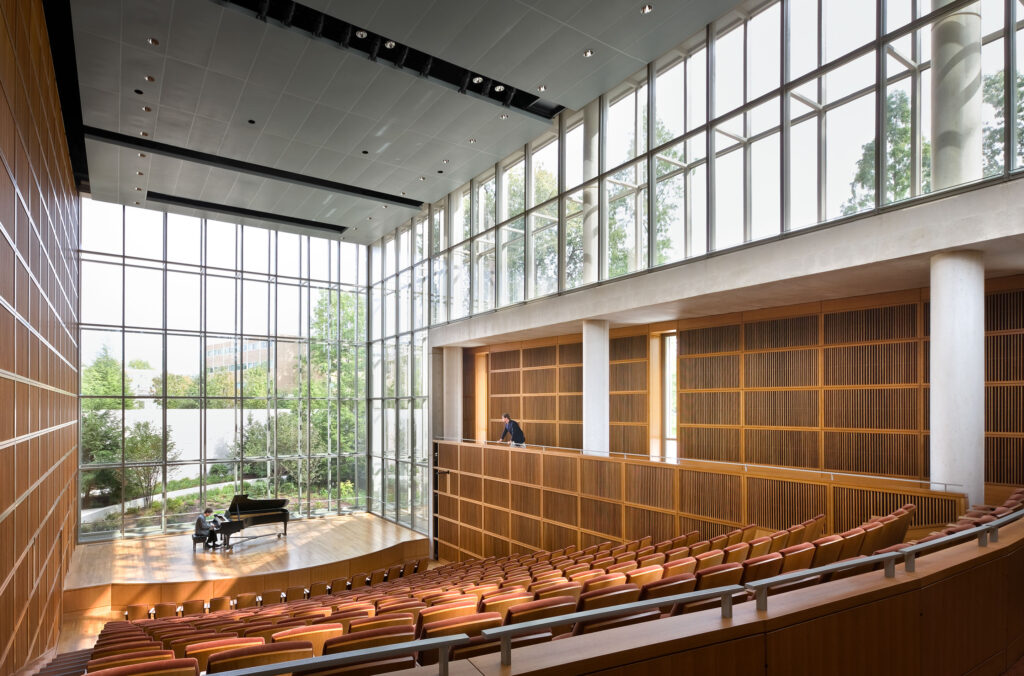
Introduction:
In the globalized world of music, studying abroad has become an essential path for many young musicians to broaden their horizons and elevate their performance skills. Whether heading to the United States, Germany, the United Kingdom, or other countries, each region offers its unique teaching methods and artistic atmosphere, suitable for students with different musical specialties and career plans. To make this article more relatable to real experiences, I will combine my study and performance experiences from Hong Kong, the United States, and various parts of Europe to provide some insights and tips for readers interested in studying music abroad. I hope this can help you progress more smoothly in the process of preparing for or realizing your dream of studying oversea



















Add some content for each one of your videos, like a description, transcript or external links.To add, remove or edit tab names, go to Tabs.
1. Clarify Your Goals and Choose Schools: Prepare by Visiting Campuses and Contacting Professors
Before applying, I usually check the school’s website or reach out to friends or alumni already studying there to get a preliminary understanding of their audition repertoire requirements, language prerequisites, and overall developmental direction. If you have the chance, try emailing or video-calling a professor whom you admire. You can ask for their advice on repertoire or technique training, and even inquire about arranging a trial lesson or short-term course to get an in-person feel for the professor’s teaching style. When I applied to music academies in the United States, some professors were more than willing to have an initial consultation, which helped me avoid discovering “incompatible musical ideals” after arriving on campus.
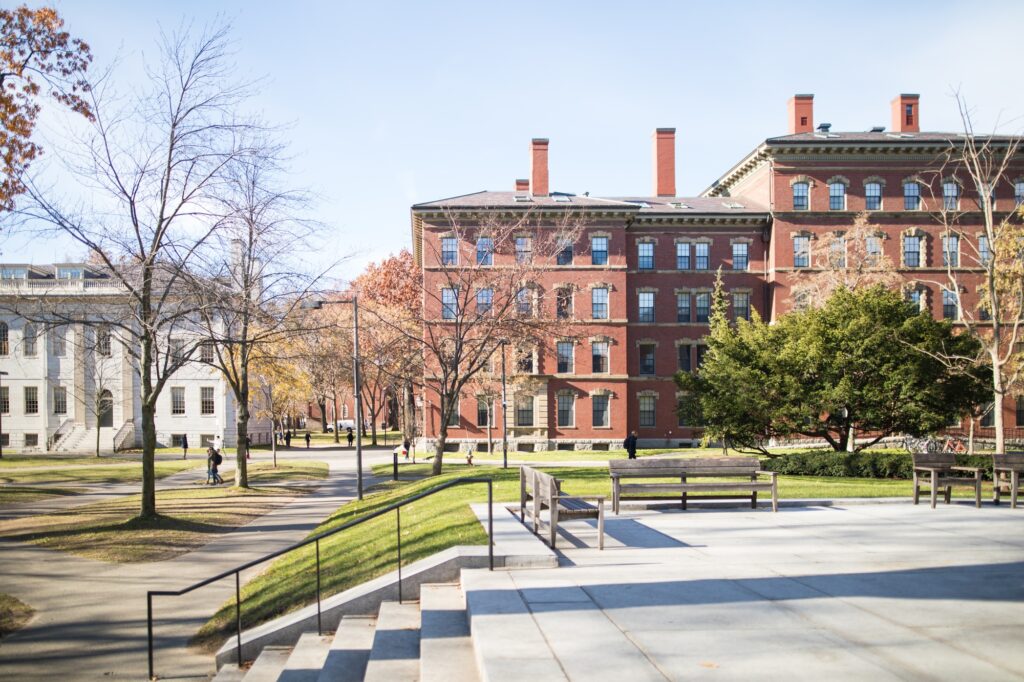
Schools in the United States
American music conservatories are known for their diverse and flexible curriculum design, particularly their requirement for students to take courses outside of music (Other Requirement Credits), such as humanities, sciences, social studies, or language courses. This system aims to cultivate well-rounded students, developing musicians who excel not only in artistry but also possess broader perspectives and critical thinking abilities.
During my time at the Cleveland Institute of Music, I took courses in Japanese and astronomy. While these subjects seemed unrelated to music, they provided new insights into cultural understanding and logical thinking. For instance, Japanese classes helped me better comprehend Japanese musical culture, while astronomy expanded my imagination regarding the universe and natural order, indirectly influencing my musical interpretation and creative inspiration.
Additionally, in my first year of doctoral studies at the Indiana University Jacobs School of Music, I took courses in music psychology, arts management, and computer programming. Music psychology delved into how music affects human emotions, memory, and behavior. This course deepened my understanding of audience psychological responses, helping me more consciously use tonal variations and emotional expression to move listeners. Arts management familiarized me with cultural industry operations and laid a foundation for potential future work in arts administration, while computer programming sparked my interest in combining technology with music, such as creating electronic music or designing digital teaching tools.
The flexibility of American music schools is also reflected in students’ ability to choose combinations of majors and minors. For example, besides majoring in piano performance or composition, you can minor in business, arts management, or other related fields, with some schools even offering double major opportunities. This is ideal for students planning to enter music education, cultural management, or creative industries. Overall, the diverse system of American music schools not only broadened my knowledge but also helped me find inspiration across different fields, further enriching my musical expression. If you’re interested in interdisciplinary learning, American music schools’ flexible system would be an excellent choice.
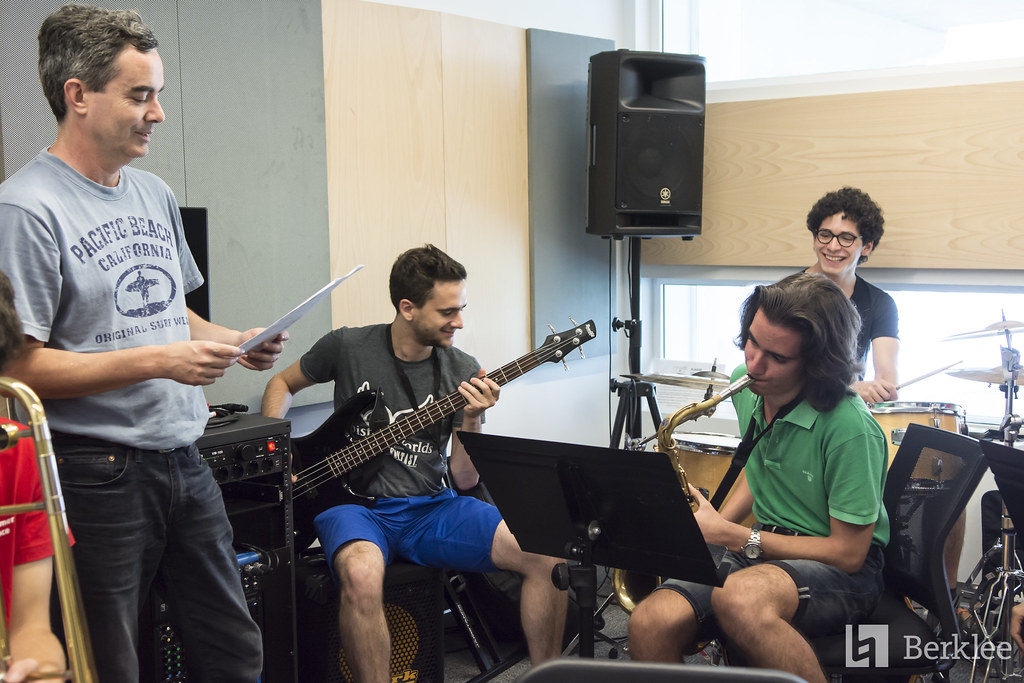
Schools in Germany and the UK
If you have a passion for classical music traditions and wish to immerse yourself in Europe’s rich cultural heritage and historical atmosphere, then music schools in Germany, Austria, or the United Kingdom are excellent options to consider. German and Austrian music academies are renowned for their rigorous and systematic teaching approach, particularly in performance technique, chamber music training, and repertoire interpretation. However, applications typically require a certain level of German proficiency (such as B1 or B2), so it’s advisable to prepare for language tests in advance. Additionally, while German public music schools offer the advantage of low tuition fees for budget-conscious students, competition is relatively intense and the admission process is quite stringent.
The UK is famous for prestigious institutions like the Royal Academy of Music and the Royal Northern College of Music, known for their rigorous teaching methods and emphasis on performance opportunities. British music schools typically offer abundant collaborative performance resources, such as partnerships with local orchestras or participation in various music festivals. The UK is an ideal study destination for students looking to enhance their stage experience and build professional networks.
Regardless of which country you choose, it’s recommended to carefully review the target school’s official website to understand their curriculum structure, language requirements, and audition repertoire details. Additionally, you can consult with alumni or peers who have studied at these institutions to assess whether your abilities match the school’s requirements and whether the school can support your long-term plans
2. Language and Culture: Adopt a Mindset of “Fitting In”
2.1 Use Basic Conversation to Break the Ice: Start with Common Phrases
Not everyone can take language courses in the host country before the semester begins. As I did when I first arrived, you can take the initiative to learn everyday phrases, mimic local speakers’ tones and expressions, and pay attention to how they use intonation in various settings. Simple steps like memorizing key words and short phrases for ordering in cafés or greeting roommates in the local language may seem small, but they can quickly bridge cultural gaps and strengthen your listening and speaking confidence.
2.2 Use Music as a Bridge: Exchange Language and Culture
As a musician, you already have a wonderful tool for communication: music.
2.3 Show Respect and Curiosity: A Positive Attitude Toward Cultural Differences

3. Connecting with Ideal Instructors: Trial Lessons and Masterclasses
3.1 Contact Early for a Trial Lesson: Learn the Teaching Style
If possible, reach out to the professor by email, social media, or through school staff, and ask whether a “trial lesson” or an online consultation can be arranged.
3.2 Make the Most of Masterclasses: Gather Varied Instruction and Broaden Your Network
Masterclasses are a fast way to understand different teachers’ styles.
3.3 Begin with Online Lessons: Explore Both Technique and Culture
If you can’t be there in person, it’s possible to do one-on-one lessons online or send the professor recordings for evaluations and suggestions.
3.4 The Teacher-Student Relationship: Nurturing Technique and Artistic Philosophy
Your primary professor usually has a significant influence on your musicianship over an extended period.
4. Scholarships and Financial Planning: Multiple Application Channels

Studying music abroad can be expensive, covering not just tuition but flights, living costs, instrument maintenance, and travel for auditions. Being well-informed about different funding options can reduce your financial stress. In addition to standard scholarships or teaching assistant positions, you can investigate private foundations, company-sponsored music awards, government international cultural exchange scholarships, or diaspora/ alumni group support.
For example, tuition in German public music schools is often lower than in the United States, but strong German skills and a competitive audition process are required. Demonstrating your abilities and getting a professor’s recommendation before the official admission can boost your chances of receiving support.Below are four popular scholarship programs of particular interest to Hong Kong students:
Below are four popular scholarship programs of particular interest to Hong Kong students:
2. Sir Edward Youde Memorial Fund Overseas Scholarships
3. The Hong Kong Jockey Club Music and Dance Fund’s Van Ritten Yung Music Fund
4. CASH Music Fund
5. Performances and Competitions: Mastering the Stage Is the Fastest Path to Growth
Actively performing and participating in competitions is one of the most effective ways to improve your playing. You’ll encounter diverse styles and nationalities, and learn to adapt your performance in different environments. Practical experience on stage hones your stability, your ability to handle stressful situations, and your adaptability to the unexpected. Below are some strategies for finding reputable competitions and the reasons why actively seeking them out is so important.
How to Find Internationally Recognized Competitions?
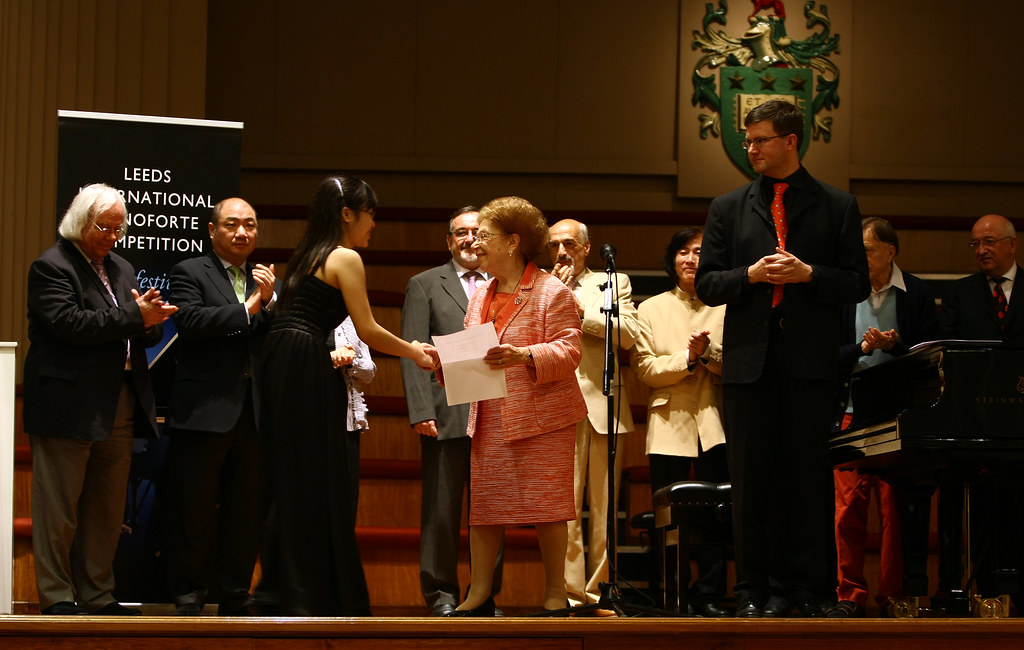
6. Why Is It So Important to Gain Competition and Performance Experience?
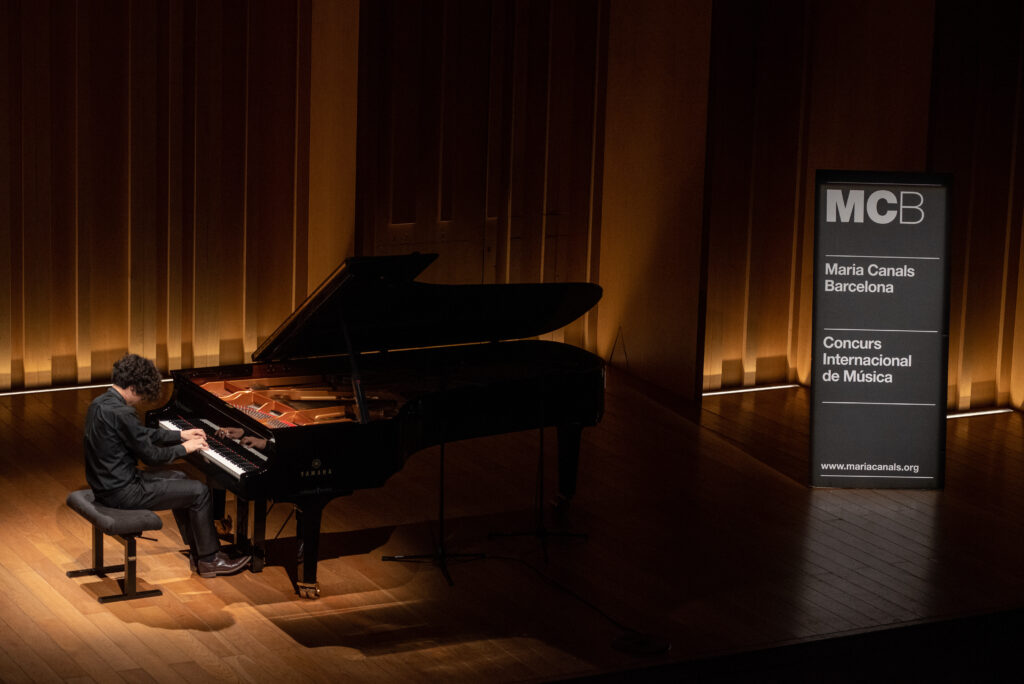
7. Adjust Your Mindset: Studying Abroad Is Not a Solitary Struggle
7.1 Emotional and Practical Realities: Shattering the Myth of “Ideal Study Abroad”
Embarking on international study often feels like stepping into a musical paradise. Yet, you should be prepared for possible cultural and linguistic hurdles. You might struggle to express yourself fully at first, and competition among peers may be intense.Suggested approaches:
7.2 Maintaining Social Connections: Leverage Both School and Local Communities
7.3 Trust Yourself: Mental Strategies for the Music Study Abroad Journey
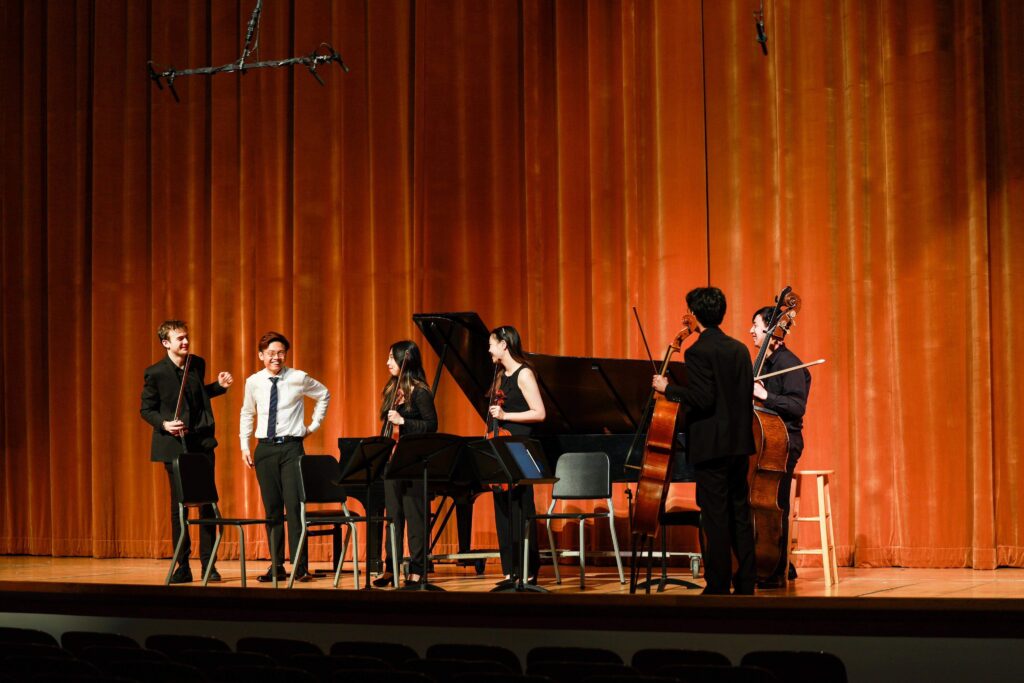
8. Preparations Before Departure: Document Reviews, Visa Applications, and Finding Housing
8.1 Document Preparation: Understand What’s Required and the Timelines
8.2 Visa Application
8.3 Finding Housing: Key to Saving Money and Feeling at Ease
8.4 Insurance and Health Matters

9. What You Gain from Study Abroad: Growth Beyond the Classroom
9.1 Accumulating International Perspective: A Collision of Cultures
Studying abroad’s greatest value lies not just in technical lessons, but in daily encounters with people from around the world.
9.2 Cultivating Independence: Life Management and Self-Exploration

9.3 Building Long-Term Connections: Expanding Your Musical Circle
9.4 Contributing to the Future: Becoming a More Complete Music Professional
Whether you stay abroad for further study or return to Hong Kong or elsewhere in Asia, your overseas experience equips you with broader perspectives and more resilient independence.
Conclusion: Every Step Forward Is the Beginning of a New Journey

Share:
黄若愚深入剖析「會、好、精、絕、化」 五大藝術學習境界, 透過生活與音樂的結合, 帶領讀者見證如何從模仿到創新,最終徹底超越外在成就,臻於融會貫通之境。
Read More